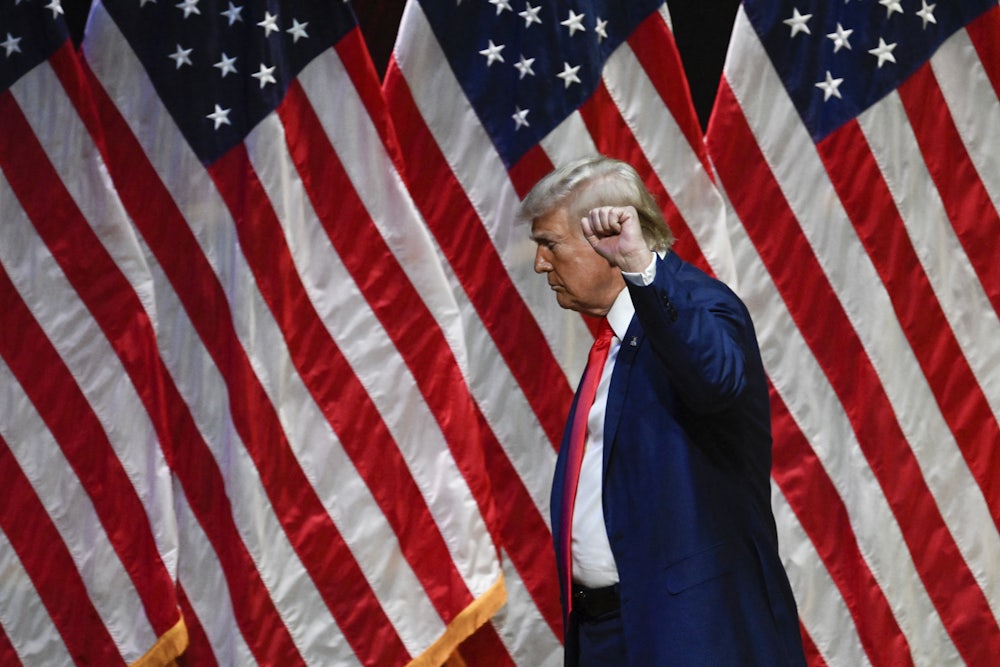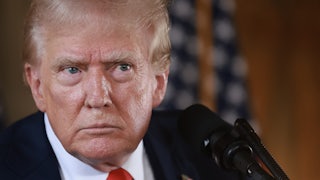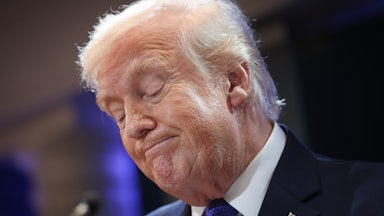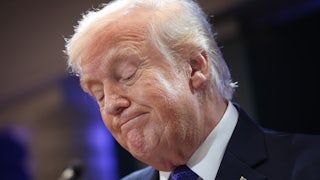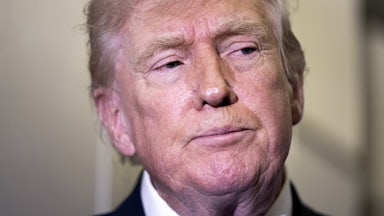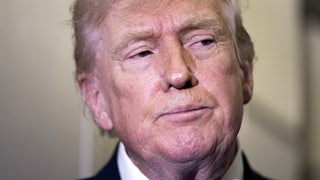Wednesday’s inflation report from the Bureau of Labor Statistics makes it virtually certain that in mid-September the Federal Reserve’s Open Markets Committee will lower interest rates at its final meeting before Election Day.
This news will unavoidably make Donald Trump very unhappy. “Quit whining,” Nikki Haley advised Trump this week on CNN, and, yes, Trump has an enlarged capacity for self-pity. But put yourself in the man’s bone-spur-widened shoes.
It’s not yet five weeks since some whack job tried to kill you, enabling you to wave the bloody shirt (“Many people say it was a providential moment; probably was”) and treat your reelection as the foregone conclusion it genuinely appeared to be. Then President Joe Biden drops out of the race and suddenly you’re losing ground to Kamala Harris. Then comes this Roger Stone business. You sprang Stone from jail after he was convicted of lying to investigators and tampering with a witness to impede investigation of Stone’s role in releasing Russian-hacked documents from the Hillary Clinton campaign. Now Stone is himself hacked, presumably by Iran, for documents from the Trump campaign. When you complain about this outrageous interference in an election by a foreign power, commentators call you a hypocrite. But your narcissistic incapacity for self-awareness renders you not just unwilling but clinically unable to understand what they’re talking about.
Looking ahead, next week’s Democratic convention will almost certainly give Harris an additional bump in the polls. The general election’s traditional home stretch starts Labor Day, and two weeks after that the goddamned Fed is going to stimulate the goddamned economy with a goddamned rate cut, exactly as Kamala and Tim and Chuck and Nancy and Sleepy Joe—oh, how you miss Sleepy Joe!—desire. And the government official who will make it happen is that duplicitous bastard Jerome Powell, whom you yourself appointed Fed chair. You saw this coming at least as far back as February, when you told Fox News’s Maria Bartiromo that Powell was “going to do something to probably help the Democrats.… It looks to me like he’s trying to lower interest rates for the sake of getting people elected.”
What’s an unhinged narcissist to do? First, you sulk. Then you double down on the Inflation Menace by giving a speech on the economy in Ashville, North Carolina. And in that speech you say: Inflation, inflation, inflation.
Trump told the crowd that his campaign was making him give a speech about the economy. “They say it’s the most important subject,” Trump said. “I’m not sure it is, but they say it is. Inflation is the most important.” Trump rambled over a variety of personal attacks against Harris (“She’s not smart. She’s not intelligent”) and her home state of California (“Poor San Francisco, we are going to try to bring that back”); Trump said, “Drill, baby, drill”; Trump complained about Tim Walz putting tampons in the boys’ room (which, for what it’s worth, he didn’t do). Trump didn’t talk much about the economy.
When Trump did discuss the economy, he mostly just repeated his favorite applause lines about inflation:
“From the day I take the oath of office, we will rapidly drive prices down and make America affordable again.”
“The cost of bacon went up four and five times. I don’t order bacon anymore, it’s too expensive.” (As The New York Times has reported, the average price of bacon is up by less than one-quarter.)
“Inflation is destroying our country.”
“I don’t believe we’ve ever had inflation like that.” (The highest recorded inflation in U.S. history was during and after World War I, when annual inflation reached 17.8 percent; the more recent record, in 1980, was 13.5 percent. In June 2022, inflation peaked at 9.1 percent.)
Even when Trump mentioned, briefly, his idiotic new plan to eliminate taxation of Social Security benefits, he justified it as necessary to shield “seniors on fixed income who are suffering the ravages of inflation.” (Trump’s proposal to eliminate taxation of tips he discussed mostly to mock Harris for stealing the idea from him.)
Trump did allude, fleetingly, to the reality that inflation has been coming down. “It’s starting to maybe get under control,” he said. But moments later Trump was once again saying that inflation is raging out of control.
Let us now remove ourselves from Donald Trump’s shoes and consider the economy as it actually exists. Inflation peaked more than two years ago and has been falling ever since. As of Wednesday, the consumer price index had fallen to a whisker below 3 percent over the previous year, and as of July 26 the personal consumption expenditures price index—a metric the Fed prefers to the CPI—put the inflation rate at an even lower 2.5 percent.
The Fed’s target rate is (for no logical reason) 2 percent. But the consensus is that the Fed has waited too long already to cut interest rates. On August 5 a very mildly disappointing jobs report unexpectedly helped crash the stock market, prompting one financial columnist to ask: “Is This 1987 All Over Again?” (On October 19, 1987, the stock market fell a record-setting 23 percent in a single day.) It wasn’t 1987 all over again—stocks recovered the next day—but the sell-off was scary enough to make the Fed look irresponsible for not cutting rates at its Open Markets Committee’s July 30–31 meeting. “If we do get the data we hope,” Powell said then, “… a reduction in our policy could be on the table at the September meeting.” Wednesday’s BLS number is “the data we hope,” and the August 5 sell-off is a data point the Fed would have preferred to avoid. Rest assured, the Fed will cut rates in September.
Trump could conceivably use the stock sell-off to argue that the Biden economy is headed into recession. There are people who actually believe this. The New York Times’ Paul Krugman, a strong Biden defender, opined on August 5 (in a column apparently written before stocks tumbled) that “the economy is definitely looking pre-recessionary.” Krugman cited unemployment creeping up (though it’s still pretty low at 4.3 percent), consumers’ deteriorating assessment of the labor market, and Amazon’s lowered revenue expectations. His evidence was pretty soft, and the column seemed intended mainly to prod the Fed into lowering interest rates. But this week Kate Duguid and Harriet Clarfelt reported in the Financial Times that investors are buying bonds “as recession replaces inflation as markets’ main fear.”
“Recession is replacing inflation as markets’ main fear” would be a pretty good campaign line for Trump, but he can’t say it because he would have to stop talking about inflation. Mostly I think Trump’s inability to quit the inflation narrative reflects his emotional dependence on reliable applause lines. But to whatever extent Trump is a rational actor, he doesn’t want to say anything to justify the Fed lowering interest rates next month. In his Ashville speech, Trump did mention, briefly, the August 5 stock sell-off, but he attributed it to a day-long sense of doubt that he, Trump, would be reelected—a doubt dispelled the next day, in his telling, when the stock market rebounded.
Trump’s obsession with inflation is in line with public polls, which continue to overestimate its importance as an economic problem. But he’d be foolish to count on that lasting through the election. Already a Financial Times poll shows voters trusting Harris more than Trump on the economy. Their reasoning doesn’t appear to be rational—they still rate Biden poorly on the economy, and Harris has yet to distinguish her economic program from Biden’s. But when the Fed lowers interest rates and Harris cheers, Trump will boo. I don’t think that will go over especially well.
